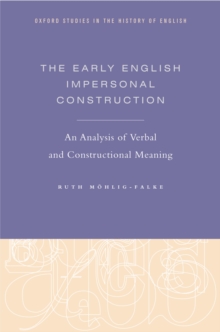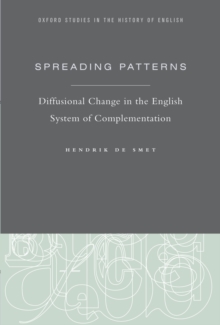
Speech, Writing, and Thought Presentation in 19th-Century Narrative Fiction : A Corpus-Assisted Approach PDF
by Beatrix Busse
Part of the Oxford Studies in the History of English series
Description
Reference to or quotation from someone's speech, thoughts, or writing is a key component of narrative. These reports further a narrative, make it more interesting, natural, and vivid, ask the reader to engage with it, and reflect historical cultural understandings of modes of discourse presentation. To a large extent, the way we perceive a story depends on the ways it presents discourse, and along with it, speech, writing, and thought. In this book, Beatrix Busse investigates speech, writing, and thought presentation in a corpus of 19th-century narrative fiction including Frankenstein, Jane Eyre, Wuthering Heights, Oliver Twist, and many others. At the intersection between corpus linguistics and stylistics, this book develops a new corpus-stylistic approach for systematically analyzing the different narrative strategies of discourse presentation in key pieces of 19th-century narrative fiction. Speech, Writing, and Thought Presentation in 19th-Century Narrative Fiction identifies diachronic patterns as well as unique authorial styles, and places them within their cultural-historical context. It also suggests ways for automatically identifying forms of discourse presentation, and shows that the presentation of characters' minds reflects an ideological as well as an epistemological concern about what cannot be reported, portrayed, or narrated. Through insightful interdisciplinary analysis, Busse demonstrates that discourse presentation fulfills the function of prospection and encapsulation, marks narrative progression, and shapes readers' expectations.
Information
-
Download - Immediately Available
- Format:PDF
- Pages:288 pages
- Publisher:Oxford University Press
- Publication Date:01/07/2020
- Category:
- ISBN:9780190212377
Other Formats
- EPUB from £37.99
Information
-
Download - Immediately Available
- Format:PDF
- Pages:288 pages
- Publisher:Oxford University Press
- Publication Date:01/07/2020
- Category:
- ISBN:9780190212377










